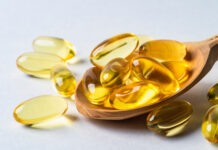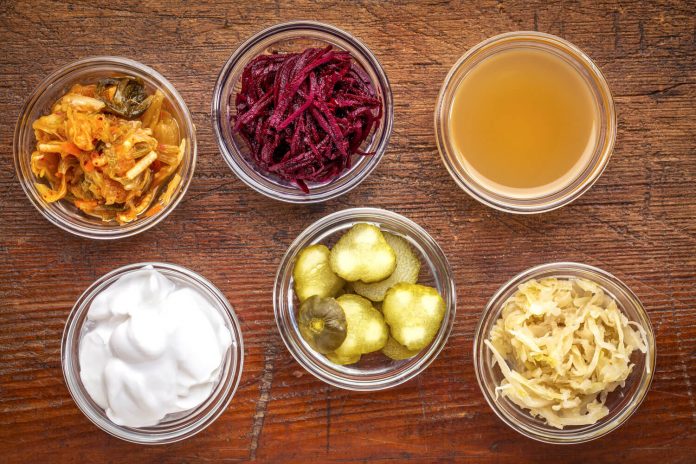Yoghurts, cheeses, leavened bread, gherkins, pickled vegetables… We consume fermented foods daily. So we swallow billions of live bacteria every day, often without even knowing it… But let us reassure ourselves: these bacteria are excellence for our health!
Airtight jars for storing food dipped in brine (a mixture of water and salt)… Fermentation is an ancestral way of preserving! The advent of refrigerators and freezers could have made this preservation process obsolete… But it was without counting on a spectacular biochemical reaction: lactic fermentation. Because this preservation process does not only preserve food: It also transforms them! Under the action of micro-organisms contained in food (yeast or benefactors bacteria such as lactobacilli), the carbohydrates (or sugars) contained in the food will be transformed into lactic acid.
Benefits of fermented foods on our intestinal microbiota
Our intestinal flora (or microbiota) is populated by nearly 100 billion bacteria. How can we strengthen this sometimes misleading flora? By repopulating it with benefactors bacteria capable of taking over the bad. These are the famous probiotics!
We find them in pharmacies in the form of supplements but also naturally in these famous fermented foods. “The micro-organisms responsible for the fermentation will boost our intestinal flora, reinforcing the presence of bacteria beneficial to our digestive system as immune and destroying certain pathogenic bacteria that can Cause disease
By interacting with our intestinal flora, these micro-organisms will also increase the digestibility of food. Finally, fermentation will significantly increase the nutritional value of foods: content of vitamins, antioxidants, minerals…
The benefits of fermented foods on the immune and digestive system
The fermented cabbage

It is rich in vitamin C and very digestible. Take a cabbage, cut it and place it in a jar to which you add water and salt… Let it ferment. You’ll get sauerkraut. And yes, sauerkraut is simply fermented cabbage! “With equal weight, a fermented cabbage will be twice as rich in vitamin C as an unfermented cabbage”
It is better that the cabbage ferments during its preparation than in our digestive tract. When fermented, the cabbage contains much less sulfur and the fibres are softened. That is why, despite the ideas received, the sauerkraut is finally very digestible.
You Can Also Read : 6 Benefits Of Argan Oil On Your Skin
Pickles
Pickles, lemons, cucumbers, onions, turnips, beets, carrots, radishes… Put on canned small fermented vegetables, also called pickles, to fill up with vitamins. “Thanks to the fermentation, these vegetables will be richer in vitamins and antioxidants”
Leavened bread
In leavened bread, fermentation will make certain minerals such as iron and magnesium more assimilated by our organism. “The fermentation of cereal grains will also allow to significantly decrease their pythian acid content, a substance that interferes with the absorption of these minerals”
Fermented dairy products

They are more digestible than non-fermented dairy products. Cheeses, fresh cream, yoghurts… The lactose concentration of dairy products will fall or disappear as a result of fermentation. “People who digest poorly milk are mostly lactose-intolerant i.e. milk sugar. These people can more easily digest these processed dairy products “
The kefir of milk
It’s a very digestible preparation that boosts the immune system. To obtain milk kefir, ferment kefir grains in milk. As with other fermented dairy products, the fermentation process will reduce the lactose content of milk. To the key: a drink more digestible.
The fruit kefir
This type of kefir is ideal for full energy. To obtain fruit kefir, ferment kefir grains in sweet water with fruit… “Thanks to the fermentation, the fruits contained in this drink will be richer in vitamins and antioxidants”
The MISO
Asian cuisine is full of fermented products: soy sauce, Korean kimchi, miso soup… “Miso (a fermented soy paste) will be three times richer in isoflavones (Editor’s note of phytoestrogens) than traditional soy”. It can therefore be appreciated by women in times of menopause for its regulating effect.
You Can Also Read : 7 Spices That Boost Metabolism































